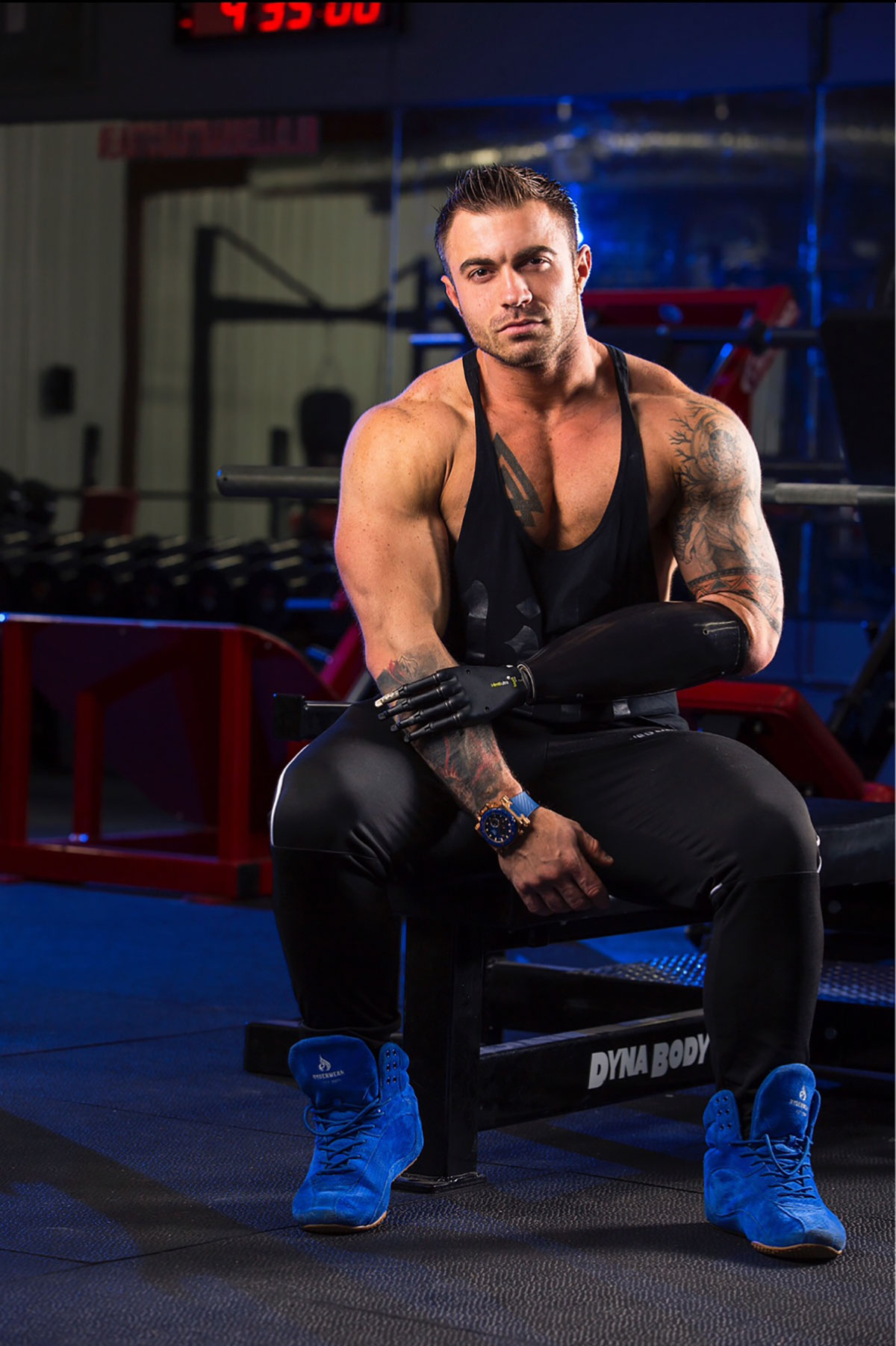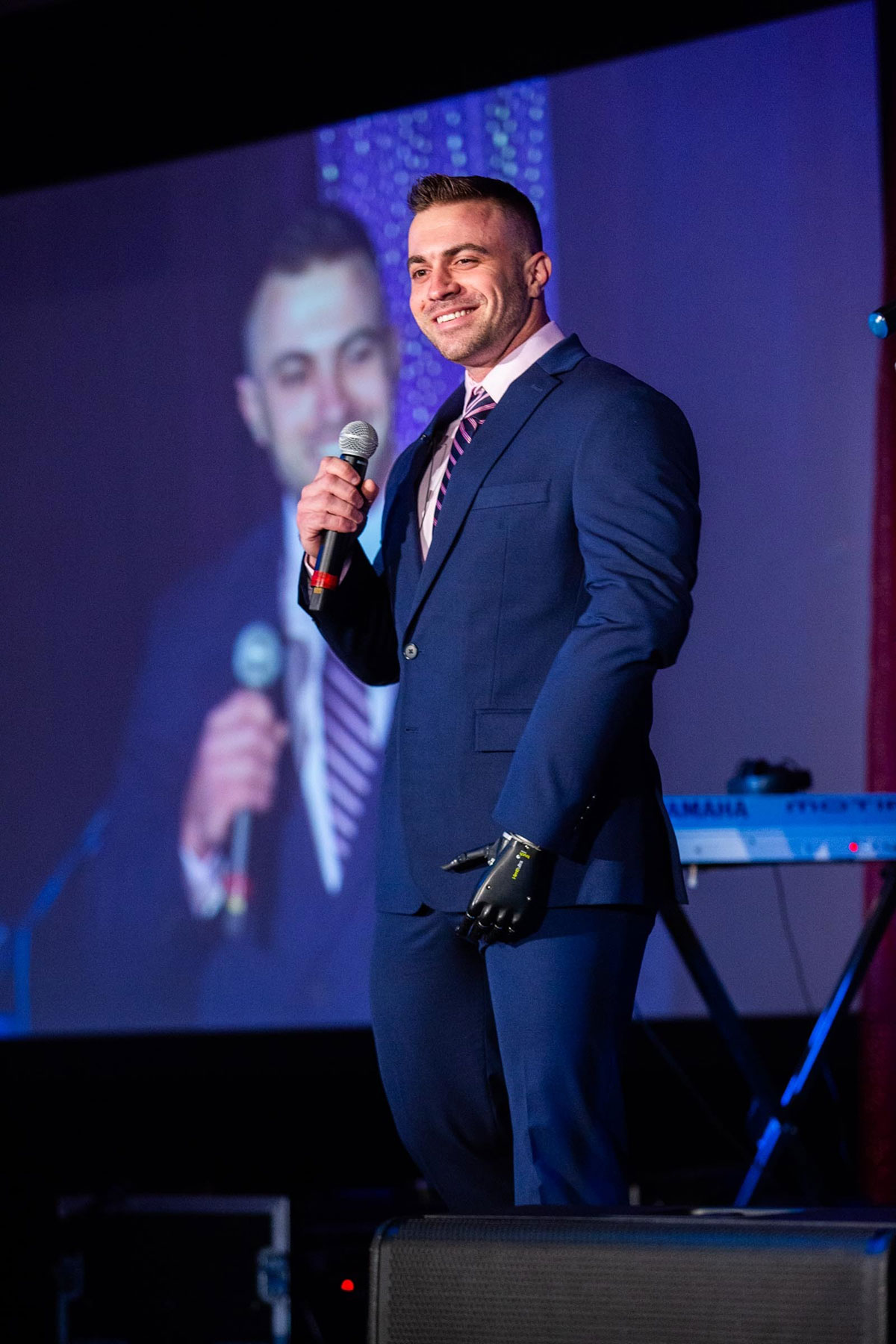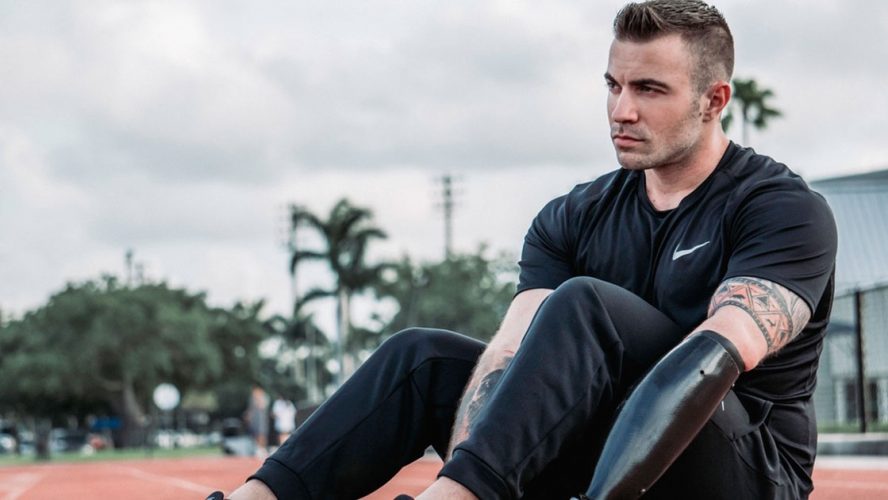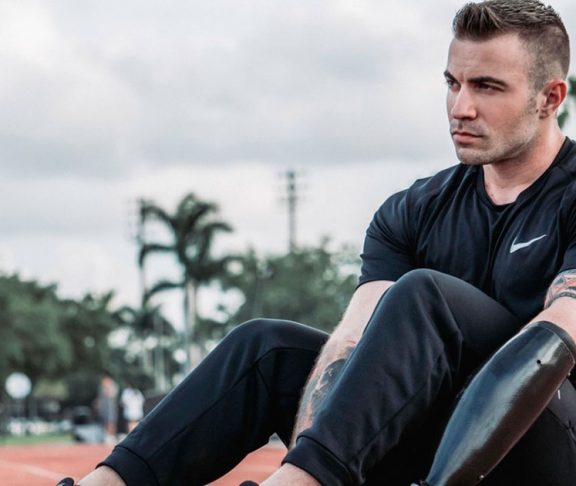Chris Ruden has a congenital birth defect that left him with only 2 fingers on his left hand and a shorter left arm. Nineteen years into battling his physical situation, he was diagnosed with Type 1 diabetes.
After earning his Bachelor’s degree in Exercise Science, he dedicated his life to being a keynote speaker in the diabetic community while also speaking on diversity, inclusion, and overcoming adversity, uplifting the spirits of those diagnosed with the disease and who face other struggles.
How did you manage your disease growing up?
I was diagnosed at 19, so I was just going into college. I had already battled the mental struggle of living with a physical disability, so I used my diabetes diagnosis as a catalyst to help other people struggling with similar conditions. I managed my condition the best I could with 8-12 shots a day. It wasn’t until i found the diabetic online community on social media that I started exploring new technology like insulin pumps and continuous glucose monitoring, which has made a great impact on my management.
How did you go from hiding your disease to becoming a speaker for awareness and contestant on NBC’s “The Titan Games”?
I hid my disability for 17 years. Once I was diagnosed with diabetes, I decided I didn’t want another health condition to define me. I started becoming an advocate for T1D by helping other people, which also helped me personally manage the highs and lows of the condition. Sometimes you teach best what you need to learn most. I started sharing my journey on social media and it blew up.

My entire business came from my decision to share the highs and lows with other people like me on Instagram and YouTube. Since then, I’ve gotten hired by different corporate events, leadership summits, and charities to speak about everything from overcoming adversity, to diversity and inclusion, to more specific talks like diabetes focused events that JDRF regularly hosts for local communities all across the nation.
I’ve spoken to T1D kids in Uganda with the Sonia Nebeta Foundation to raise awareness for the global insulin crisis that affects everyone with diabetes, but some in third-world countries far more than others. My social media presence and powerlifting accomplishments have given me a platform to inspire, and, thankfully, NBC and Dwayne “The Rock” Johnson noticed that. They gave me the opportunity to show that limitations are self-imposed and I did just that.
What does your exercise regimen look like?
I train 6 days a week. I hit most muscle groups twice a week and progress in weight or sets/reps regularly with regular “deload” or recovery days. I do “prehab” or mobility work daily to stay healthy under heavy weight. Blood sugar management is key for me to perform optimally. I’ve got my pre-workout meal locked down (rice cake, peanut butter, and apple butter) and I know my blood sugar trends based on if I’m lifting heavy, for long durations, or at differing times of the day.
What advice would you have for someone who was recently diagnosed?
Connect with people online and local JDRF chapters. Get involved and meet other people who understand the condition. You are not alone. Also, read and learn. Most fear related to diabetes comes from a lack of knowledge regarding best management practices or resources. Read Gary Scheiner’s book “Think Like A Pancreas.” Learn as much as you can. The biggest resource you have is just being resourceful.
What is the most important issue to the diabetes community right now?
The price and availability of insulin. While not much has changed regarding insulin (Humalog and NovoLog), prices have skyrocketed by over 500 percent, leaving families unable to afford life-sustaining medication. We will literally die without insulin, which means it’s a human need and right — not a privilege.

Sonia Nebeta Foundation (SNF) is a nonprofit that helps and adults with T1D in Uganda manage the condition. I went there in 2018 and saw that the state of diabetes healthcare, while greatly improving with SNF’s help, is heartbreaking. Insulin pricing, access, and general diabetes education make living with T1D a losing battle. Not only do we need a cure but realistically, until that happens, we need to help those with T1D, and not just those in the United States.
Is there anything else you would like to add?
I run the largest T1D-only online fitness and nutrition challenge, “the Fit ME T1D Challenge,” to help people get in shape, have a private community, and have better quality of life with T1D. I also give out tons of information and comedic relief about T1D and living with a chronic illness on my Instagram (@chrisruden) and YouTube (youtube.com/chrisruden) pages.
Staff, [email protected]


